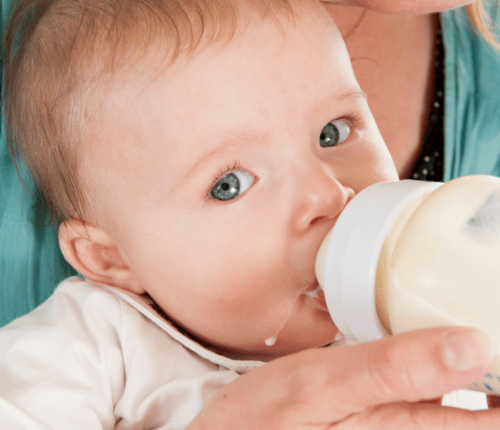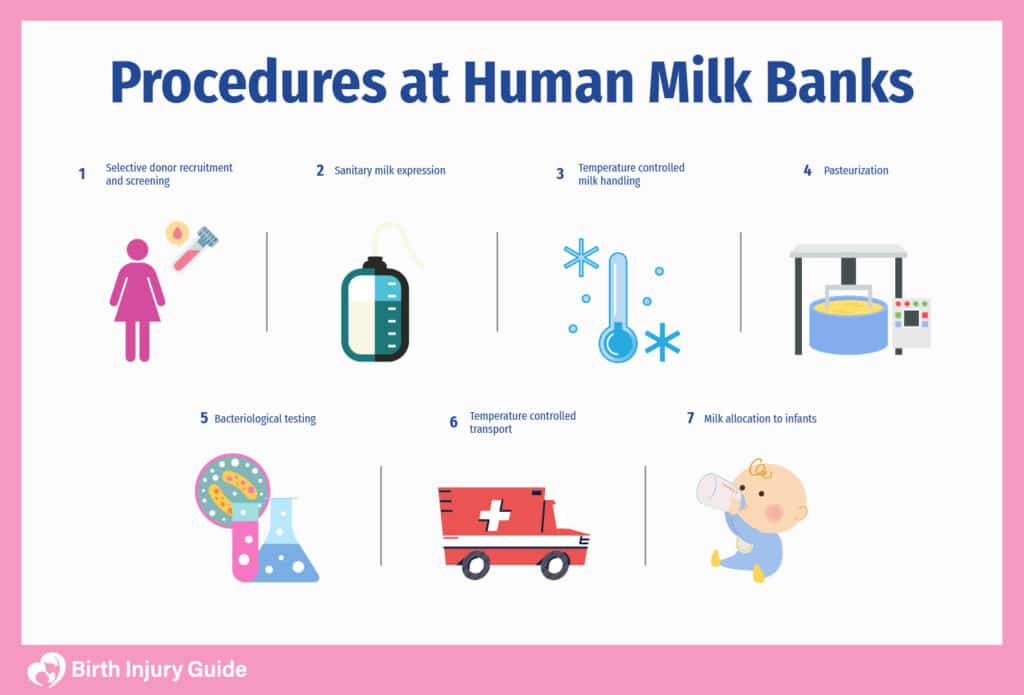
Human Milk Donors as an Alternative to Infant Formula
According to the United Nations Children’s Fund (UNICEF) and the World Health Organization (WHO), breastfeeding is one of the most powerful practices for promoting child survival and well-being when initiated within the first hour of birth, provided exclusively for six months, and continued up to two years or more with the provision of safe and appropriate complementary foods.
Among the many benefits of breastfeeding, it is believed to improve child survival, protect against life-threatening and chronic illnesses, promote healthy growth, boost early child development, and support healthy brain development.

Unfortunately, the reality is that breastfeeding is not always a possibility for all mothers, because successful lactation requires balancing a combination of physical, emotional, and even personal factors.
Breastfeeding Difficulties
While some women manage to breastfeed with no complications, Canadian and U.S. surveys have shown 10% to 32% of mothers never begin breastfeeding, 4% stop within the first week of the baby’s life, and 14% stop breastfeeding before their baby is 2 months old.

This can happen for a variety of reasons, the most common are:
- Lactational Difficulties (physical discomfort while nursing or pumping, baby not satisfied with nursing, infant weaning on their own)
- Medical issues (concern about baby’s lack of weight gain, starting birth control or using other contraindicated medications, breast hypoplasia or glandular dysfunction)
- Personal conflicts (returning to work or school, negative experience with breastfeeding in the past, current or past sexual abuse)
- Infectious Diseases
The most frequent solution for the lack of breastfeeding is the use of infant formula as a way to fulfill the infant’s nutritional requirements.
Commonly, cow’s milk-based infant formulas are the substitute for mother’s milk as it is a globally available source of mammalian proteins with high nutritional value. Although this is the simplest solution for many babies, cow’s milk allergy (CMA) remains to be the most prevalent type of food allergy among infants, affecting up to 3.8% of small children. Adding to this, research shows that babies fed cow’s milk-based formula have a much higher risk of developing necrotizing enterocolitis (NEC) than babies fed breast milk.

NEC is a serious gastrointestinal condition that primarily affects premature babies. Because a preemie’s system is not as fully developed as an infant delivered at full term, formula is not as easily digested. As a result, bacteria can build up in the intestines causing inflammation and infection.
In some cases, NEC can lead to serious infections, cerebral palsy, other serious injuries and even death as the inflammation and infection can cause bowel perforation, which causes germs to leak into the abdomen.
What Can You Do When Breastfeeding is not an Option?
When breastfeeding is not an option, however, resorting to human donors’ milk is known to be the second best choice.
Human milk donors are typically healthy breastfeeding postpartum women with a surplus of milk who volunteer to donate milk.
It is available at human milk banks (HMBs), which are services that recruit breast milk donors and collect, pasteurize, and store the donors’ milk (end sentence here). It is then tested for bacterial contamination, and distributed to families.

Pasteurized donor milk provides the nutritional and immunologic benefits of breast milk while reducing infectious complications such as NEC in preterm or low birthweight infants compared to formula milk as the pasteurization process eliminates the risk of toxic, bacterial, or viral contamination while maintaining the nutritious and immunologic qualities of breast milk.
Oftentimes the cost of donor milk is too high for a new mother. That said, associations like the Human Milk Banking Association of North America (HMBANA) make it possible for babies to receive safe pasteurized donor human milk, regardless of their family’s ability to pay.
Knowing that there are alternatives that will help those who are not able to or decide not to breastfeed for various reasons can be of great relief, especially with the misconception that every mother can do it, and the risks that cow’s milk-based formulas may bring to those with premature babies.
If your baby developed NEC after being fed cow’s milk-base infant formula compensation may be available for your family to cover both past and future medical expenses, ongoing treatment your child needs, and your expenses as a parent such as loss of wages, child care, and funeral expenses if the NEC lead to the death of your child.
At Birth Injury Guide we are here to help and offer FREE legal consultations. To learn more about your legal rights and options, complete the form on this page or call 877-415-6603 now.


